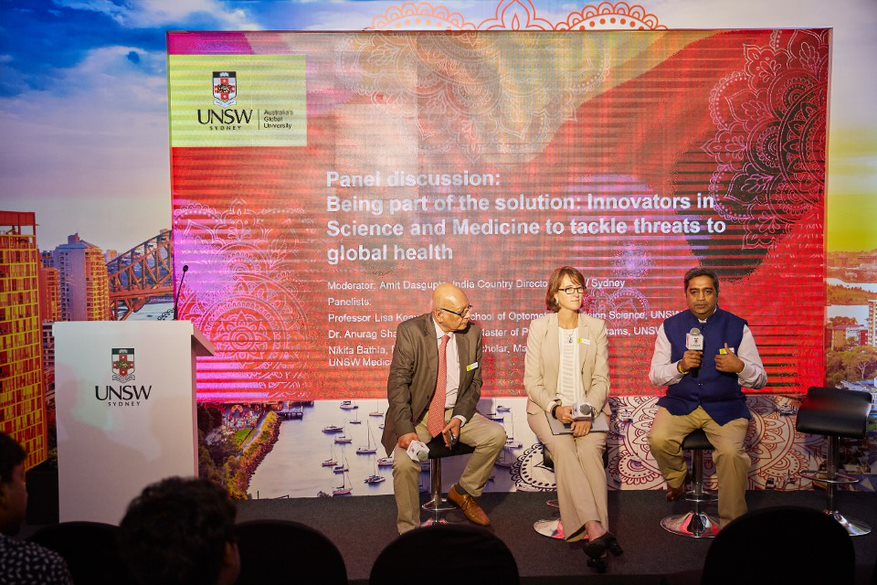‘Online education will be the game-changer’
In my view, the impact is a positive one because it is making us leapfrog to a new normal that is now being discovered. We are moving from traditional modes of teaching – from sprawling campuses, face to face classrooms, interaction with teachers, peers, studying, making projects together – to something dramatically different. We will be moving to online teaching, and blended teaching models will come to the fore; technology will be used much more; it will help increase the number of people who education can reach. So, while it has disrupted and caused chaos across the globe, the critical question is where do we go from here!
Q. It seems like education will become much more digital; this will require effort, investment and a lot of work, especially in countries like India.
When you have a full-blown crisis we need a rapid response to it, we don’t have the luxury of staggering out a response or bring it about in a phased manner. We have had to respond in a matter of 2-3 weeks! I think, like many other universities, what UNSW has done is dramatic in response to the question that how can you re-engage students and how can you re-engage faculty. Face-to-face is not going to happen for a while; we are already looking at online classes, which may move forward even for the June and September intake. What is required is re-wiring the faculty – of course it is throwing up significant challenges, like some programs require lab work that can’t be done online – but, it also is work rapidly in progress!
Everyone recognises that this is a unique crisis that is not country-specific, but impacting the entire globe, and I don’t think that there will be long queues outside study visa offices in any universities at present. The manner in which we think has been dramatically overhauled.
The advice I can give is that we never really thought about online education that seriously; Indian students and parents looked at it quite differently – big campuses and a multicultural experience, and why not? Globalised education meant cultural contact with students from China, Somalia, Japan ….. and this is what makes education so complete, but I don’t thing that’s likely to happen for some time.
I would see two types of reactions to online education: some would be okay as long it is a degree from a recognised university; they might see it initially as the second-best option, but will get used to. But then you would have a large group who are not going to have access to online education for socio-economic reasons and that’s where the private sector and the government will have to step in because the Prime Minister of India has committed to education for all. If that is so then it is their (government’s) fundamental responsibility to put in money to upgrade technology and ensure that all young people aspiring for education have access to quality, formal education. This is going to be the flavour of the year; we have to make sure everyone enjoys the flavour!
Q. UNSW President and Vice-Chancellor Ian Jacobs had set a target of reaching 100,000 Indian students by 2025 under the Diya Initiative. Where do such targets stand now?
It should be clarified that UNSW saw that target as a number that would be impacted through collaborations with Indian institutions, and not looking at the number coming to study at UNSW. President Ian Jacobs firmly believes that great education stands on the twin pillars of exceptional learning and exceptional research but with a single objective – transforming lives. So, how can we do that in partnership and collaboration with institutes of excellence in India and with the corporate sector, and how this will transform lives – it can be through electrifying rural India through photovoltaics in which UNSW is a world leader, or in waste or water management – that I think is what education is expected to do and that’s the spirit behind his words, I am honoured to be part of this vision to transform lives (in India); it is humbling, and we need to start.
Q. We are facing possibly the biggest public health crisis of the century. UNSW has a collaboration with Medvarsity. India’s first online medical certification and training company, of the Apollo Hospitals group. Do you expect to see more such collaborations in India and South Asia in the area of public health?
UNSW has an extremely strong public health program and indeed a lot of Indian students have been attracted to it. Some have come back, like Dr. Nikita Bathla in Bangalore. UNSW is collaborating with multiple institutions in India, like The George Institute with which we have been doing significant work, especially in research in public health. It’s a challenge, a necessity, a requirement ….. something the Government of India and private institutions hadn’t focused enough on earlier. What we are seeing now is the need for robust collaborations in building a strong cadre of public health specialists because the coronavirus is one health issue we are facing right now. But there could be more, and we need a full-fledged cadre to anticipate, but also figure out how to deal with such crises. So, yes, we are committed to building a strong platform between UNSW and public health institutions in India.

